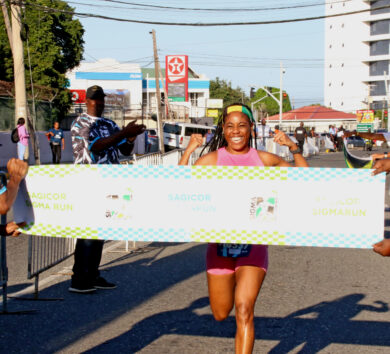

Executive Director of the Institute of Jamaica (IOJ), Vivian Crawford, believes that while there are many challenges especially with law and order, all is not lost with Jamaican society.
He emphasises, however, that more Jamaicans need to take responsibility for their actions, rather than claiming that a particular course of action is “their right.”
Crawford was a special guest on the Emancipation Day edition of CCRP Update with Gerry McDaniel on Radio Jamaica 94FM (Sunday, August 1). He spoke about rights and responsibilities attendant with Emancipation, under the theme “Lessons from Emancipation: Freedom to Do What?”
The IOJ director said many of today’s Jamaicans were simply not aware of the nature, character and accomplishments of those who were freed when then Governor, Sir Lionel Slater, read the Emancipation Proclamation from the steps of the old King’s House in Spanish Town.
Crawford made reference to the free villages, including Sligoville, Bethel Town and Sturge Town which were established post-Emancipation, and to the markedly harmonious existence of the new citizens in that period, especially given that many of them lacked formal education.
“There was no crime or violence back then,” Crawford maintains, noting that the new governor, Charles Metcalfe (after whom Metcalfe Street in downtown Kingston is named) was led to comment upon his arrival on the “generally tranquil nature of the country,” which he remarked as “evidence of the present peaceful disposition of the inhabitants.”
This, in the year 1839.
Crawford attributed that tranquillity to the existence, even in the immediate post-Emancipation period, of a solid home structure, with well-defined roles, rules, values and attitudes. Many of the old sayings and proverbs which have become repeated and popular within society today were an expression of those said values.
Another important feature of that early society, Crawford pointed out, was collective responsibility over all, a feature of his own upbringing in the Maroon community of Moore Town, Portland. Nowadays, he said, individuals demand redress for every situation, and an adult scolding a child not his or her own within a community would find themselves under attack from the parent(s).
Crawford said the experiences, as well as the values of our ancestors, offered valuable lessons for a more stable and productive society today, and that more Jamaicans should adopt the posture of “being their brother’s (or sister’s) keeper” rather than the “eye for an eye” attitude that now prevails. He added that if we did not actively seek to retrieve and retain that value system, then the current problem would get worse.







Comments